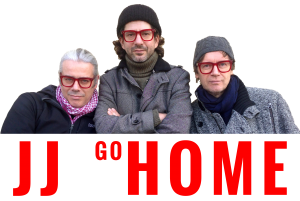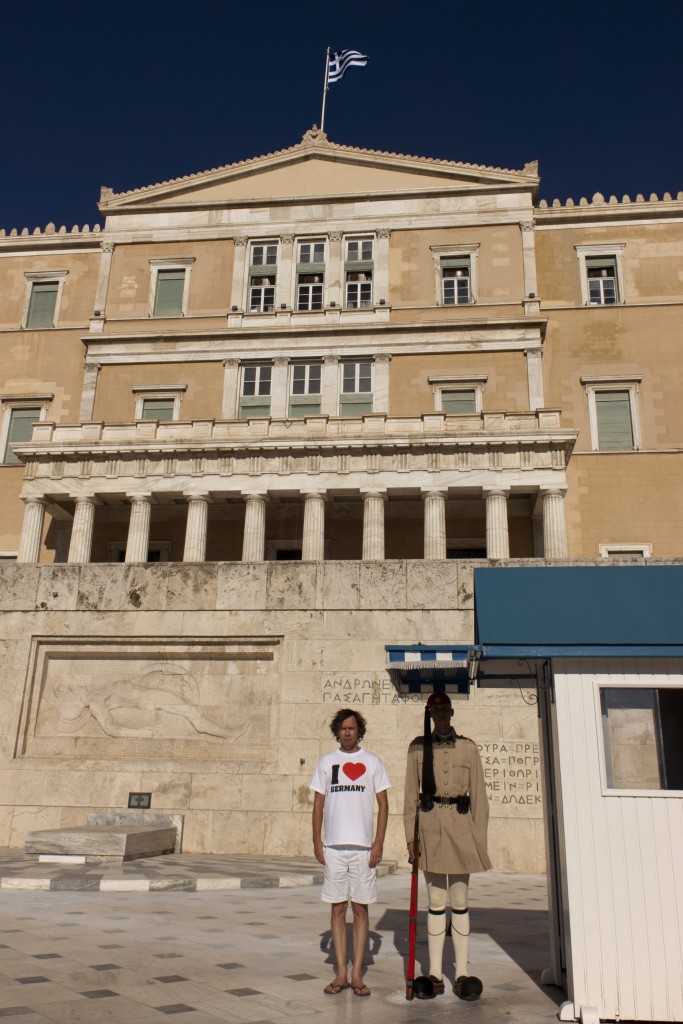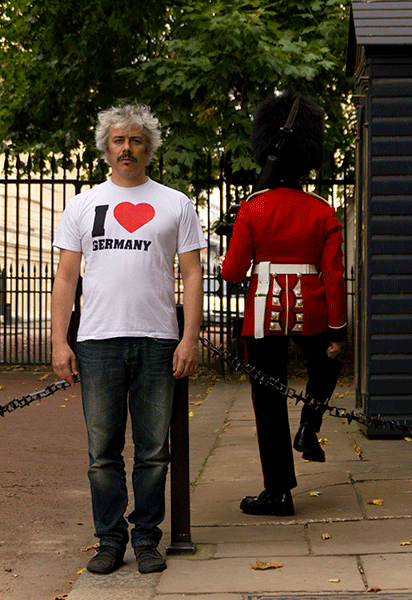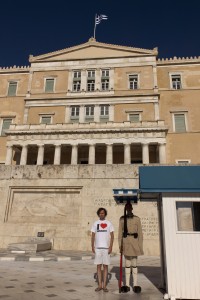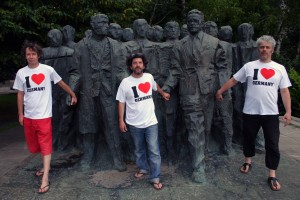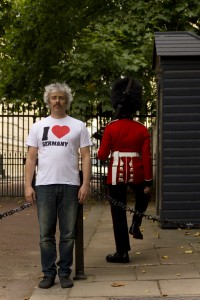I ♥ Germany
Everybody has at least one of them. The “I heart” t-shirts made their appearance as a nice tourist’s gimmick that was saying at least two things: that you love a given city or country, and that you have been there. I Love New York. I Love Paris. I Love Ibiza. I Love UK. Then, they went viral and different variations started to appear. I Love Jesus. I Love Pasta. Finally, we entered the age of customization, and variations started to become even more interesting. I Love Me. I Love Bacon. I Love Brutus. I Love One Direction. I Love Your Mum. I Love Ass. I Love Mafia, even. We can love anything and still be socially accepted, because we are expressing it in a funny way.
Janez Janša loves Germany. So much that, to find his favorite t-shirt, he traveled through Germany, from Berlin to Köln, finally finding one – pardon, three of them – in the backroom of a tourist shop in Frankfurt. Germany is the most powerful and influential country in the EU. Germany is the country of the Bund, the 10-year bond used as a benchmark to calculate the stability of another country economy and to rate it. Germany is a country that attracts immigrants from all over the world, including young people looking for jobs, low rents, a good quality of life and the possibility of having children and feeding them.
So, Janez Janša loves Germany, and he has all the reasons to love it. He shows off this love proudly, wearing his brand new t-shirt wherever he may go, and taking pictures. Look, how happy he looks in his new t-shirt: in Ljubljana, where he lives; in Athens, where he spent his summer holidays; in London, where he went to work…
I Love Germany, shows how even abused significants such as the “I Love” trend may take an unsuspected, powerful meaning when juxtaposed and remixed with other significants, and how a similarly abused gesture (the tourist portrait) can become a strong political gesture.
In these simple, effective images, three significants are at play with each other: the “abused” significant of the “I Love” t-shirt, applied to a subject (Germany) that is, more often than not, the object of an unspoken, discreet love; the “hijacked” significant of the name Janez Janša, belonging to the leader of the Slovene National Party as well as to the three artists in the show; and the plain significant of the background, from time to time related to politics and history (like the monument to Edvard Kardelj in Republic Square, Ljubljana), and to local and global economics (the Greek soldier and the “I Love Sales” sign). Using the oblique strategies (neither critical nor affirmative) that became part of their signature style, Janez Janša, Janez Janša and Janez Janša ask us some uncomfortable questions: how do you position yourself as an active subject in the globalized world? How do you conceal tradition and consumerism, being a global tourist and a victim of the financial crisis? And finally: what do you love?
